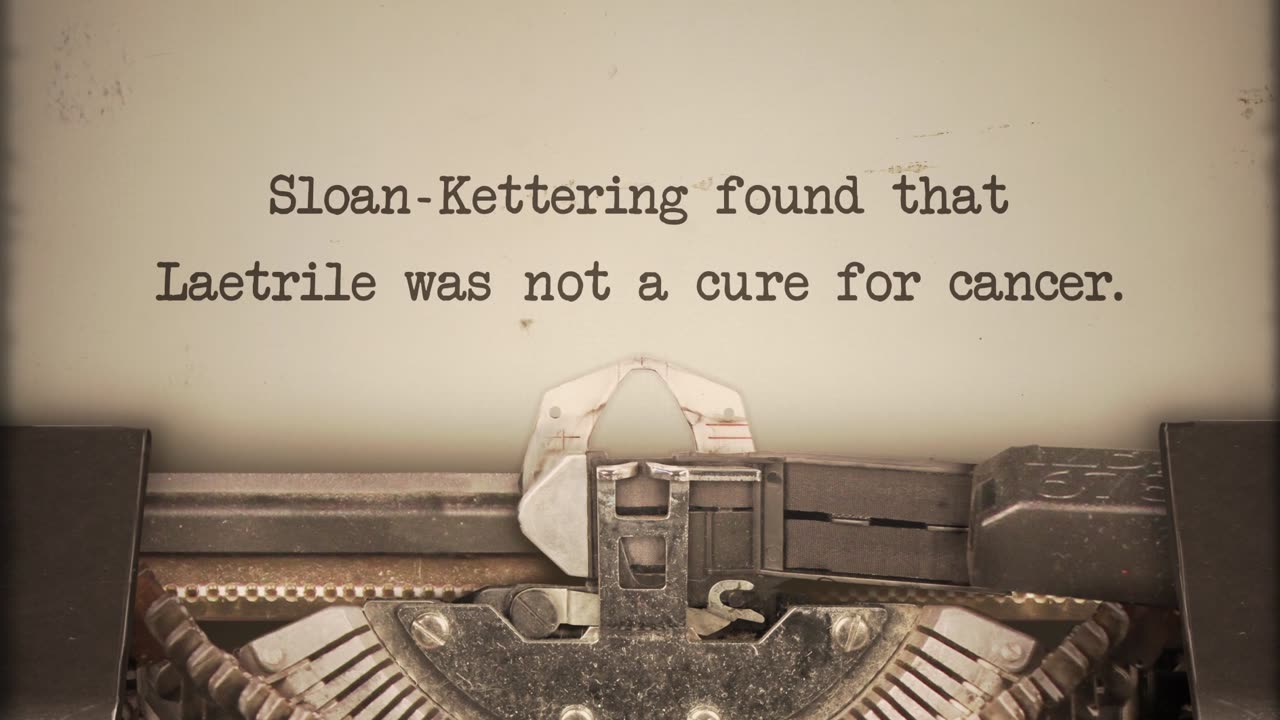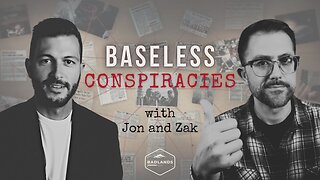Premium Only Content

Second Opinion: Laetrile at Sloan-Kettering (trailer)
The War On Cancer, launched in the early 1970s, set the stage for a massive influx of new ideas in fighting the disease of cancer. Memorial Sloan-Kettering Cancer Center, America’s leading cancer research center at the time, was assigned the task of testing an unconventional therapy called “Laetrile” in an effort to curb the public’s “false hope” in the alleged “quack” therapy.
Ralph W. Moss PhD, a young and eager science writer, was hired by Sloan-Kettering’s public relations department in 1974 to help brief the American public on the center’s contribution to the War On Cancer. One of his first assignments was to write a biography about Dr. Kanematsu Sugiura, one of the Center’s oldest and leading research scientists as well as the original co-inventor of chemotherapy.
While meeting with this iconic scientist to pen a biography on his 60-year career at Sloan-Kettering, Moss discovered that Sugiura had been studying this “quack remedy” in laboratory mice, and with unexpectedly positive results. Shocked and bewildered, Moss reported back to his superiors what he had discovered, only to be met with backlash and denial from Sloan-Kettering’s leaders on what their own leading scientist had found.
Fueled by respect and admiration for Sugiura—Ralph W. Moss attempted to publicize the truth about Sugiura’s findings. And after all diplomatic approaches failed, Moss lived a double life, working as a loyal employee at Sloan-Kettering while also recruiting fellow employees to help anonymously leak this information to the American public—through a newly formed underground organization they called—“Second Opinion”.
Learn more at https://www.secondopinionfilm.com/
-
 34:52
34:52
Steph & Kayls
13 hours ago $0.53 earnedToys In The Bedroom: Fun, Fantasy, or Too Far? | Ep. 3
4.34K2 -
 2:03:22
2:03:22
Badlands Media
15 hours agoBaseless Conspiracies Ep. 129: Vatican Black Ops, Red Shoes, and the Financial Empire of the Popes
173K44 -
 2:39:38
2:39:38
TimcastIRL
9 hours agoMS-13 Story BURNS Democrats, Media PANICS Tries To Get Off Immigration Story | Timcast IRL
228K817 -
 8:02:19
8:02:19
RalliedLIVE
15 hours ago $9.94 earnedWARZONE WINS ALL DAY w/ RAL
89.3K20 -
 25:49
25:49
Stephen Gardner
11 hours ago🔴Trump Was RIGHT! Newsom’s HUMILIATING Report EXPOSED!
68.3K36 -
 1:36:46
1:36:46
Tucker Carlson
9 hours agoThe Pentagon Didn’t Fire Dan Caldwell Over Leaks. They Fired Him for Opposing War With Iran.
153K219 -
 8:00:01
8:00:01
SpartakusLIVE
10 hours agoGames w/ StoneMountain64 || Duos w/ StevieT into the night
58.6K2 -
 1:34:18
1:34:18
JustPearlyThings
9 hours agoHigh Value Men Are Happy With Wives That Are Mid (Call-in Show) | Pearl Daily
58.9K32 -
 10:32:15
10:32:15
ttvglamourx
16 hours ago $6.47 earnedBIRTHDAY STREAM !DISCORD
52.8K11 -
![[Macho Madness] Featuring G2G, Lanc & Mochi [ Fortnite --> Ghost Recon Wild Lands ]](https://1a-1791.com/video/fww1/fe/s8/1/h/g/6/D/hg6Dy.0kob-small-Macho-Madness-Featuring-G2G.jpg) 9:46:00
9:46:00
CHiLi XDD
10 hours ago[Macho Madness] Featuring G2G, Lanc & Mochi [ Fortnite --> Ghost Recon Wild Lands ]
37.7K